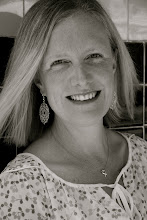
Whenever Stephanie Hatton thinks of ‘home’ she thinks of a community, or suburb or city but never a house. ‘Maybe that’s because I’ve always lived in pokey apartments’, she says. After growing up in Sydney near beaches and parks, she moved to the UK for six years after finishing her university degree. She and her husband returned to Sydney, started a family and a year ago moved to Saudi Arabia.
Like most expats moving to the Middle East, the Hattons have come for career advancement and to save money. They plan to stay for up to three years. But for a westerner living in Saudi, even for a very short amount of time, it’s a hard adjustment. In Saudi, Stephanie is also unable to drive and has to wear an abaya in public. Shops shut four or five times a day for prayer and the heat is oppressive (over 45 degrees Celsius a day in Summer). While she misses much about Sydney – ‘the parks, breakfasts at buzzing cafes, beaches, the sparkling harbour and the freedom to walk about and do as I please’ – Stephanie and her family are happy with their new home.
In Saudi, most expats live in compounds. As Stephanie says, ‘this is primarily for security reasons but also for the freedom (women can walk about in “normal” clothes) and the sense of community.’ All the compounds are bordered with high walls and barbed wire, while Saudi National Guard soldiers armed with machine guns are stationed at the entrance. Stephanie and her family usually have to go through two or three checkpoints to get into the compound. The Guards will check her ID (iqama) and search for bombs and other explosive devices. As Stephanie says, ‘I was horrified by this the first time I arrived; even though it does make you feel safe. Now it's just part of our daily routine. Lily [her daughter] waves hello and goodbye to the guards every day.’

But it’s also the compound lifestyle that gives this family their sense of home. ‘Most people go out of their way to make you feel welcome. The lifestyle here is so vastly different for most people and particularly tough for women to settle. From the first day I arrived, I was invited for coffee at someone's house, my daughter was invited for a play date and I had people showering me with advice and tips.’

From this sense of community come strong friendships, ‘Whenever someone hears that you or your kids are sick, you always get a call with an offer of help. When my husband and eldest daughter were stranded in the UK because of the volcano ash a few months ago, I had a stream of visitors bringing baby food, offering play dates and keeping me company so I wasn't too lonely.’
Stephanie also feels that compound life is ideally suited to children, ‘The kids' lifestyle is so safe and free. They ride around on bikes and all the people in the restaurants, shopkeepers and pool boys know their names. When they go to the playgrounds, they know all the children there and when we were recently flooded all the kids came out in their swimming costumes to splash about on the roads - it was such a nice sight to see.’

The family’s villa is much larger than anywhere they have lived before: three bedrooms, two-and-a half bathrooms and a pool on their doorstep. Stephanie also has a maid who comes in a few hours a day five days a week and it’s this extra help, especially with young children, that makes it easier for Stephanie to be so far away from her family, ‘I’m trying to make the most of the time I get to spend with my kids and enjoy the slow pace of life.’

But living in pleasant surrounds cannot change the climate, ‘There are air conditioners in every room to cope with the heat and in summer you need to run a bath for the kids using only cold water and wait half an hour for it to cool down before putting them in!’
Stephanie also likens compound life to ‘living in a retirement village as it’s a VERY slow pace of life and it can drive some people around the bend. It's also hard to have any anonymity. A friend of mine describes it as “boarding school for women” and I imagine it would be tough if you had a falling out with someone although luckily that's not happened to me...yet.’
While the house Stephanie’s family lives in doesn’t really feel like theirs, ‘I really don't think you ever feel like a compound villa is your home. Every villa looks pretty much the same (only slightly larger or smaller) and people are so transient here’, that doesn’t really matter, ‘I guess for me, it's hard to separate a home from a community or neighbourhood. I've never been much for having the best or biggest house on the street. I think it's much more important to live in a nice community. As long as you have your family with you, it doesn't matter where in the world you are (even in the middle of the Arabian desert!).
*Photos of Compound & desert by Stephanie Hatton

